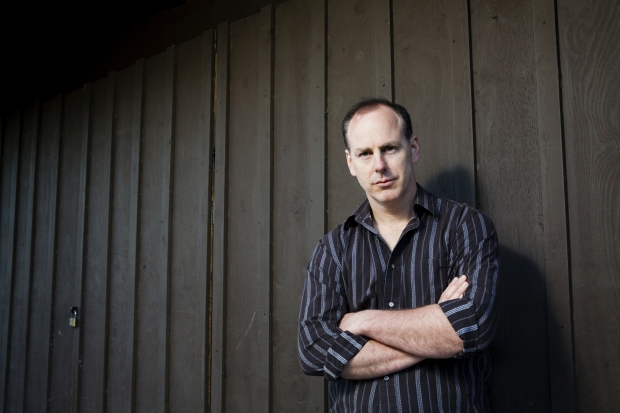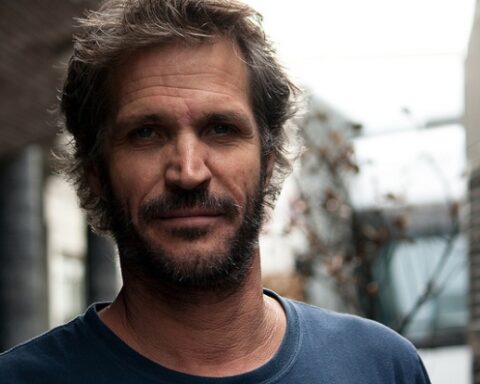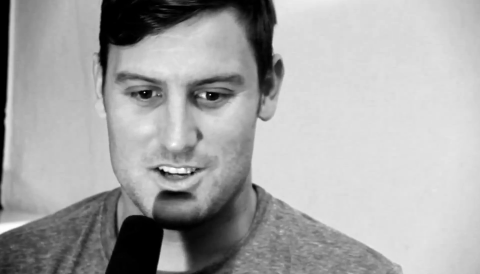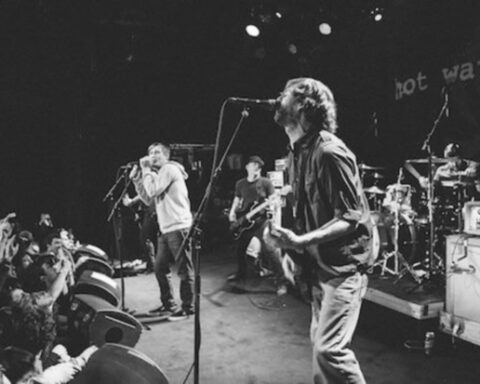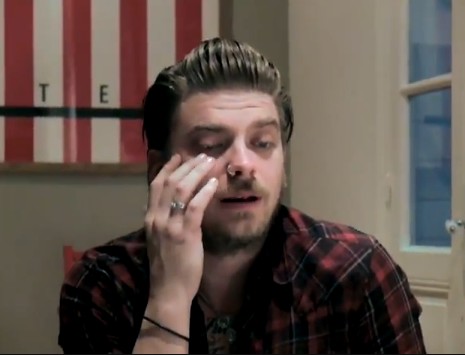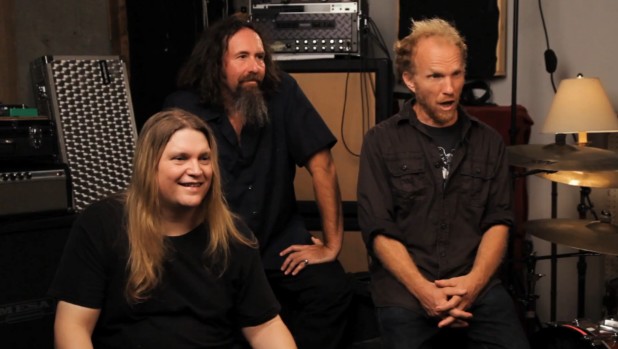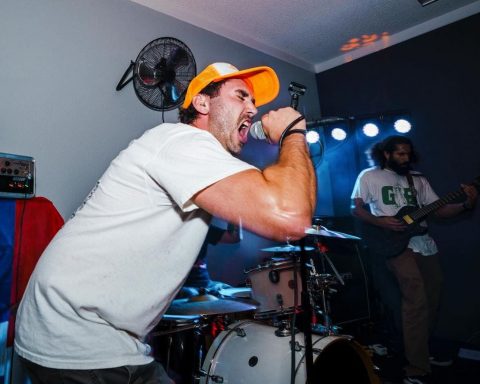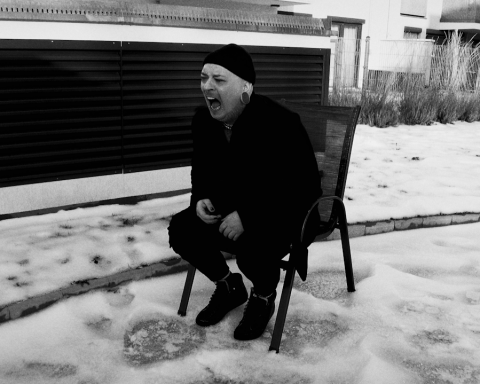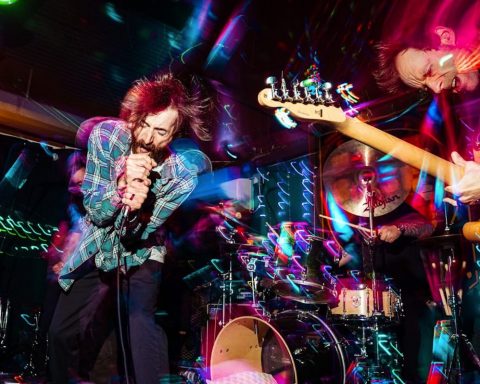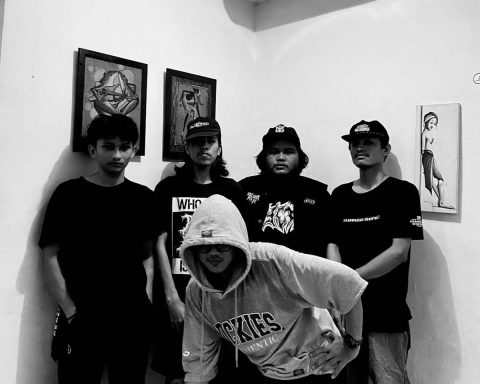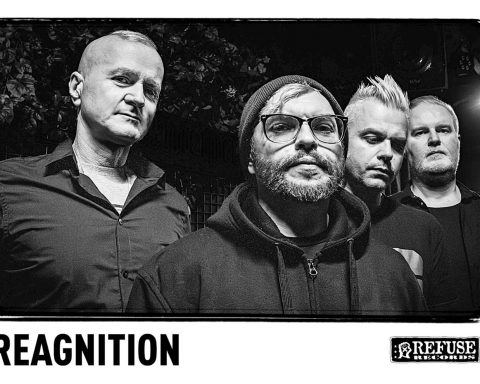Earlier this week, Billboard.com conducted an interview with BAD RELIGION lead singer and founder Greg Graffin, who discusses the making of the band’s anticipated new album “True North”, which finally arrives next week.
What went into creating this new album?
This entire record was partially developed out of a realization that had to do with our other lives. We’re all parents in the band, and all of our kids now are reaching the ages of what we were like when we first started the band, when we first decided to ‘turn punk.’ And seeing them go through it reminded me that that was really tough. It’s weird, ’cause watching your kids struggle is almost as hard as going through it yourself, and that was very relevant to writing songs that not only are true to an older audience — because what we’re saying is not juvenile in any way — but in keeping with a formula, spouting revitalized universal truths that affect people at all ages. And that’s what we’ve always striven for as songwriters — not to be dated, not to look for something that’s temporary or maybe in vogue, but rather some kind of universal sentiment that’s going to be applicable to many people throughout their development.
How does the title, “True North,” represent that?
The whole concept of finding true north fits that mode very well, because it’s suggesting that something you set out to do when you’re a youngster doesn’t have to fall by the wayside as you become a man or a woman in this world. You still have to look for and constantly challenge the things you’re told in order to find your own sense of direction, and in order to motivate you to find truth in this world.
Only one song passes the three-minute mark, and lots don’t go over two minutes. Bad Religion has recorded a ton of these fast burst-style songs as well as longer ones. Are there different songwriting mindsets at play?
A little bit. Part of that is just choosing the tempo. If you think about it, a four minute Bruce Springsteen song has just about as many beats as a two-minute Bad Religion song. So a faster tempo means a shorter song, and certainly if I’m gonna write a punk song then it’s gonna be a fast tempo.
How did it feel to finally title a song simply “Fuck You”?
In a sense it was liberating. My off-the-cuff answer is that it took me 32 years as a songwriter to finally be able to write what I feel. But the truth is that song was floating around for a long time. I kept humming it to myself; that’s an example of a song that had the music before the lyrics. The only thing that really fit right there was “fuck you,” and it actually ended up being just the right sentiment. I can’t believe you can look back on our long list of over 250 songs by Bad Religion in our career and you haven’t seen this title. And the words look great together, Bad Religion, “Fuck You.” The cool thing about it is also that it’s not infused with anger. In fact, it’s really a song about the Pavlovian response we all have in how, when you do just come out with it and say it, you usually end up in more trouble than had you not said it. It’s very rarely a well thought out action. In the sense that we’re analyzing human nature, it’s kind of in keeping with Bad Religion.
Is it gratifying to continue moving forward rather than being wrapped up in your legacy?
Oh, definitely, yeah. I feel like we’re still creating our legacy, and that’s very unique. I like to use the term “heritage act”-you know you’re a heritage act when you’ve stopped making albums and you’re still getting asked to play. They want you to play music that’s 30 years old because you haven’t made an album for 30 years. But Bad Religion keeps making records every couple years, and I think the highlights of the last ten years of albums equal or surpass the highlights from the first ten years of albums. I think that’s the key to not becoming a heritage act.
A couple years ago it seemed like this might be your final album.
I always joke when I’m onstage, and sometimes my dry sense of humor doesn’t translate with people who are in the audience. I think there was probably a journalist at one of those shows who said, “I heard it! I heard it said, this might be their last album.”
Would your band ever make a calculated, publicized decision to retire?
I can’t imagine it. You’ve seen it happen too many times, where a band like Ozzy goes on tour and says, “This is it! This is our last f–king tour!” And the tour is so wildly successful that nobody in their right minds would call it quits after that. The purpose of saying “this is our last tour” is only to drive publicity. And if it works, then there’s really no reason to really retire. We’re not into stunts. If that’s what we’re relying on, it flies in the face of this longevity and vitality I’ve been talking about all this time.
Is it unrealistic for an artist to just proclaim he or she is finished? Can you really decide you’re through with the need to create and share art?
I often get asked this by journalists like yourself and I say, “Well, let me ask you something: When are you gonna call it quits and say, ‘This is my last article’?” You can’t do it, it’s a part of your life. And if it’s part of your life, you can answer, “When I’m dead there won’t be any more. But as long as I can do it and be viable, why would I give it up? It’s my lifestyle.” People who are creative, who do it as a lifestyle, it’s kind of silly to make that claim you’re done, because you just never know when that spark is going to hit you again. You can’t necessarily predict how you’re going to feel. In ten years I’ll be 58, and I might still feel like making a punk record. That’s the way it goes. I can’t guarantee that we can continue to tour as much as we do now, but it’s because we’re developing those other areas in our lives, which has kept us useful all these years. Being a well-rounded person is taking more and more time away, and that has only proven to help in terms of songwriting for new Bad Religion projects.
The rest of the interview can be read here.



